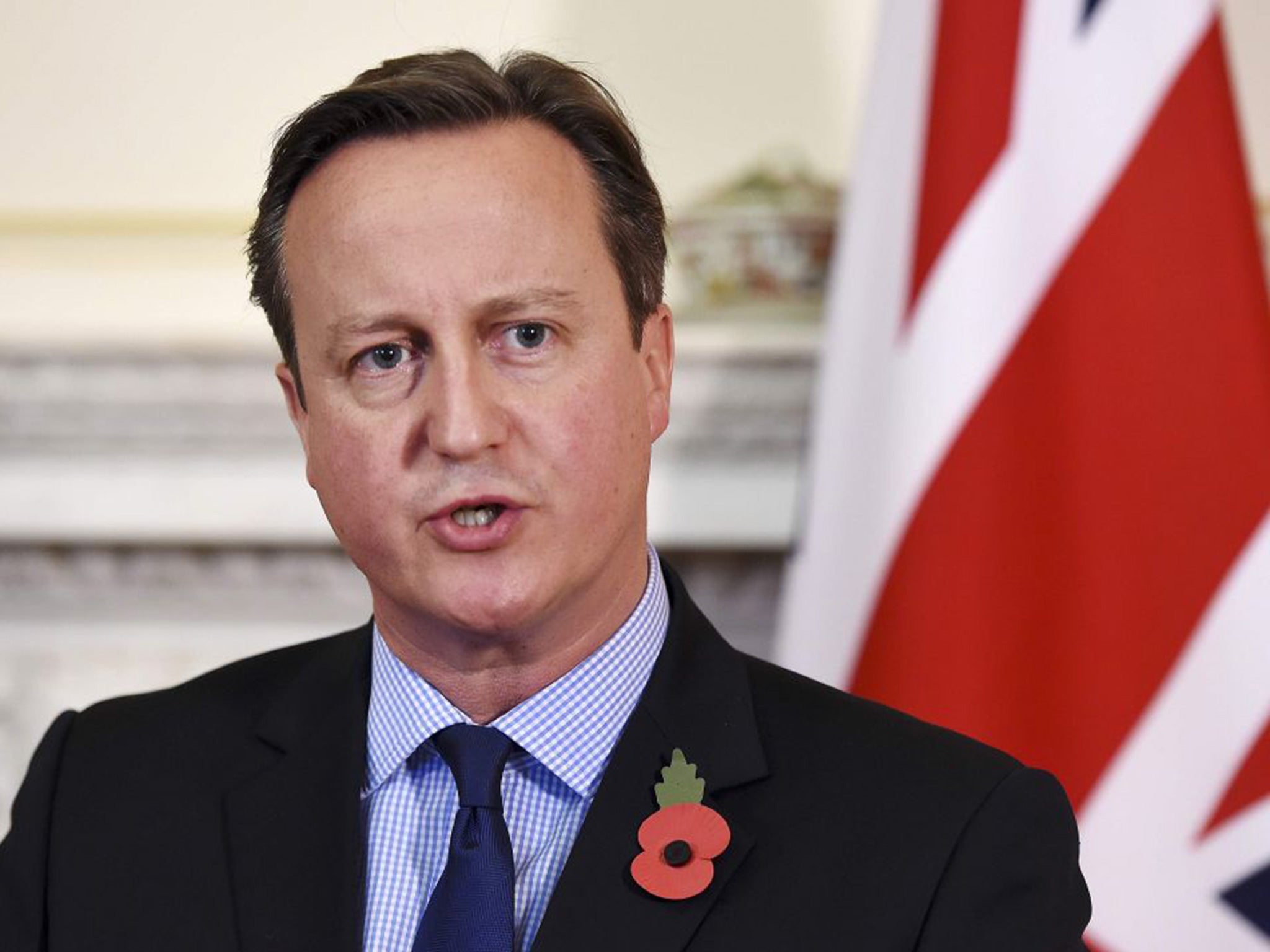EU referendum: As the moment of truth approaches, the Prime Minister makes less and less sense
He propounds the moderate, sceptical but pragmatic middle way. However, there isn’t really a third way. There is in or out

Your support helps us to tell the story
From reproductive rights to climate change to Big Tech, The Independent is on the ground when the story is developing. Whether it's investigating the financials of Elon Musk's pro-Trump PAC or producing our latest documentary, 'The A Word', which shines a light on the American women fighting for reproductive rights, we know how important it is to parse out the facts from the messaging.
At such a critical moment in US history, we need reporters on the ground. Your donation allows us to keep sending journalists to speak to both sides of the story.
The Independent is trusted by Americans across the entire political spectrum. And unlike many other quality news outlets, we choose not to lock Americans out of our reporting and analysis with paywalls. We believe quality journalism should be available to everyone, paid for by those who can afford it.
Your support makes all the difference.David Cameron is like a conjuror who has forgotten the rest of his trick. For years, he has suggested that Britain’s present relationship with the rest of the European Union is intolerable and that, when the time comes, he will set out a package of dramatic changes that will suddenly make it beneficial and, indeed, essential.
Yet the closer he gets to his abracadabra moment, the more obvious it becomes that he will settle for the minor changes that have been well trailed, and most of which have already been agreed in principle. The list of demands that he will set out in a letter to Donald Tusk, the president of the EU, on Tuesday, will, as we report today, turn out to be little more than a series of headings for further discussion.
The changes that Mr Cameron has already set out are not trivial. In fact, the restrictions he wants to impose on benefits for new arrivals from the rest of the EU may be too much to ask of central European countries, all of which have to sign off his demands. There will undoubtedly be tough bargaining ahead. But they are not fundamental.
Which is why, as the moment of truth approaches, the Prime Minister makes less and less sense. In extracts of a speech he will deliver on Tuesday, he says that “if and when” he achieves an agreement, he will campaign to keep Britain inside a “reformed” EU “with all my heart and all my soul, because that will be unambiguously in our national interest”. But then he says, “if we can’t reach such an agreement… which I do not believe will happen, then we will have to think again about whether this European Union is right for us”.
This is an unconvincing attempt to co-opt one of the favourite rhetorical devices of Tony Blair’s: the third way. Mr Cameron seeks to pretend that there are two extremes in this debate – those who want to stay in the EU, come what may, and those who want to come out regardless of what he negotiates. He propounds the moderate, sceptical but pragmatic middle way.
However, there isn’t really a third way. There is in or out. Mr Cameron knows this and it is clear that he recognises that staying in is “unambiguously in our national interest”, regardless of the details of his renegotiation. If he were being entirely honest, and were serious about possibly leaving, he would be drawing up a handful of minimum conditions which, if not met, would prompt him to advocate withdrawal. But we are not holding our breath.
Maybe supporters of the EU, including this newspaper, should go along with Mr Cameron’s pretence. He is trying to manage a party that is hostile to the EU but persuadable. His strategy is to lead his troops to the top of the hill of ambiguity and to hope that, when they realise there is no magic answer to the things about the EU that they dislike, it will be too late for them to organise effectively against it.
But The Independent on Sunday would rather argue the case for Europe for what it is, imperfections and all. It is not possible to endorse EU membership while pretending that Britain can exclude itself from the freedom of movement of EU workers, for example. That freedom is a basic right of EU membership, and it is also enjoyed by 1.8 million British people living elsewhere in Europe.
Nor is it possible to pretend that Britain can remain in the EU while Parliament is granted a veto over any EU law. Joining the European project involved some pooling of sovereignty and that was explicit from the start. We welcome the coming referendum as a matter of democratic principle, expedient though it is for the Conservatives.
But the arguments should be made openly and honestly. The basic choice is what it has always been. In or out. And we say we should stay in.
Join our commenting forum
Join thought-provoking conversations, follow other Independent readers and see their replies
Comments